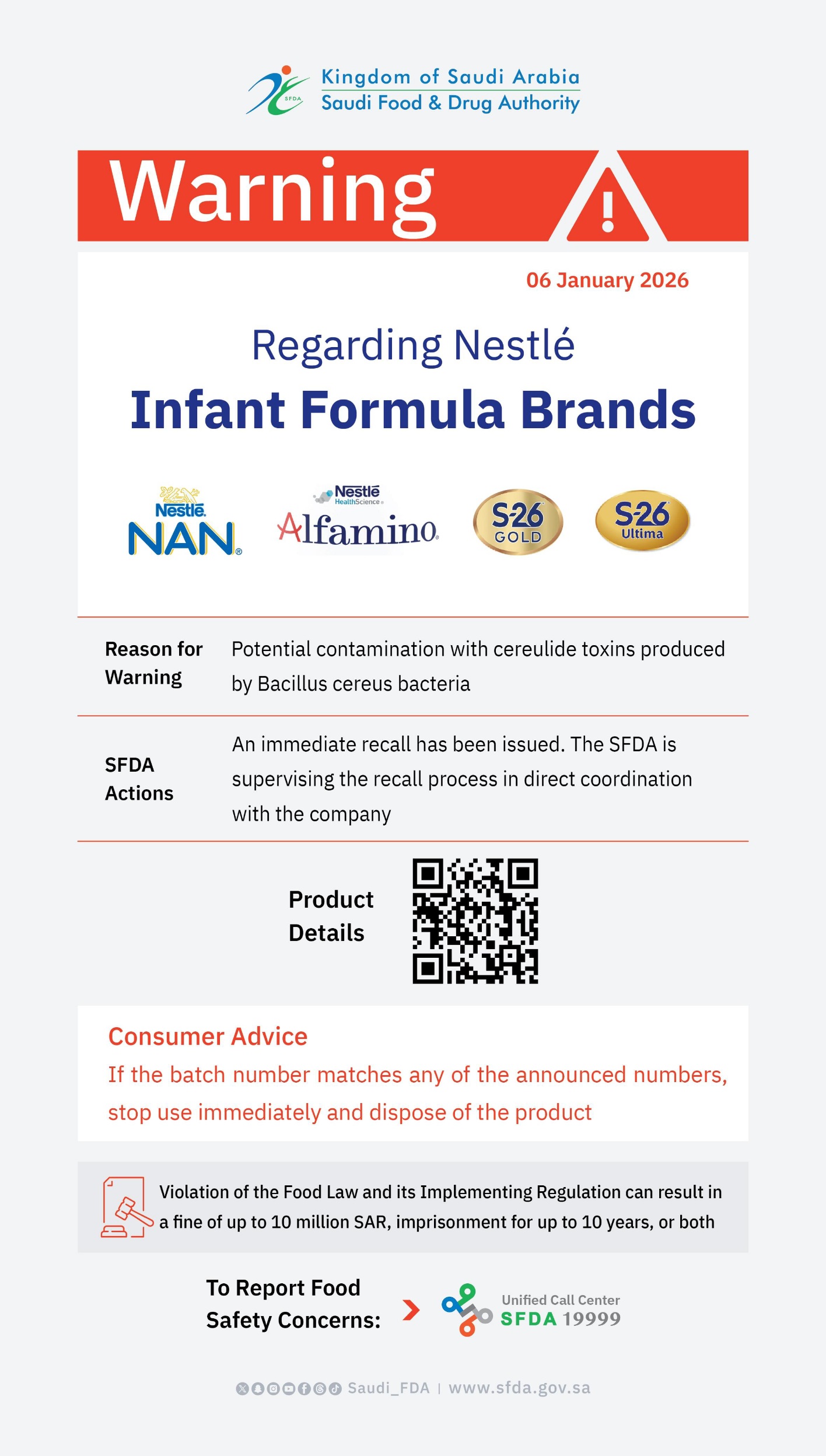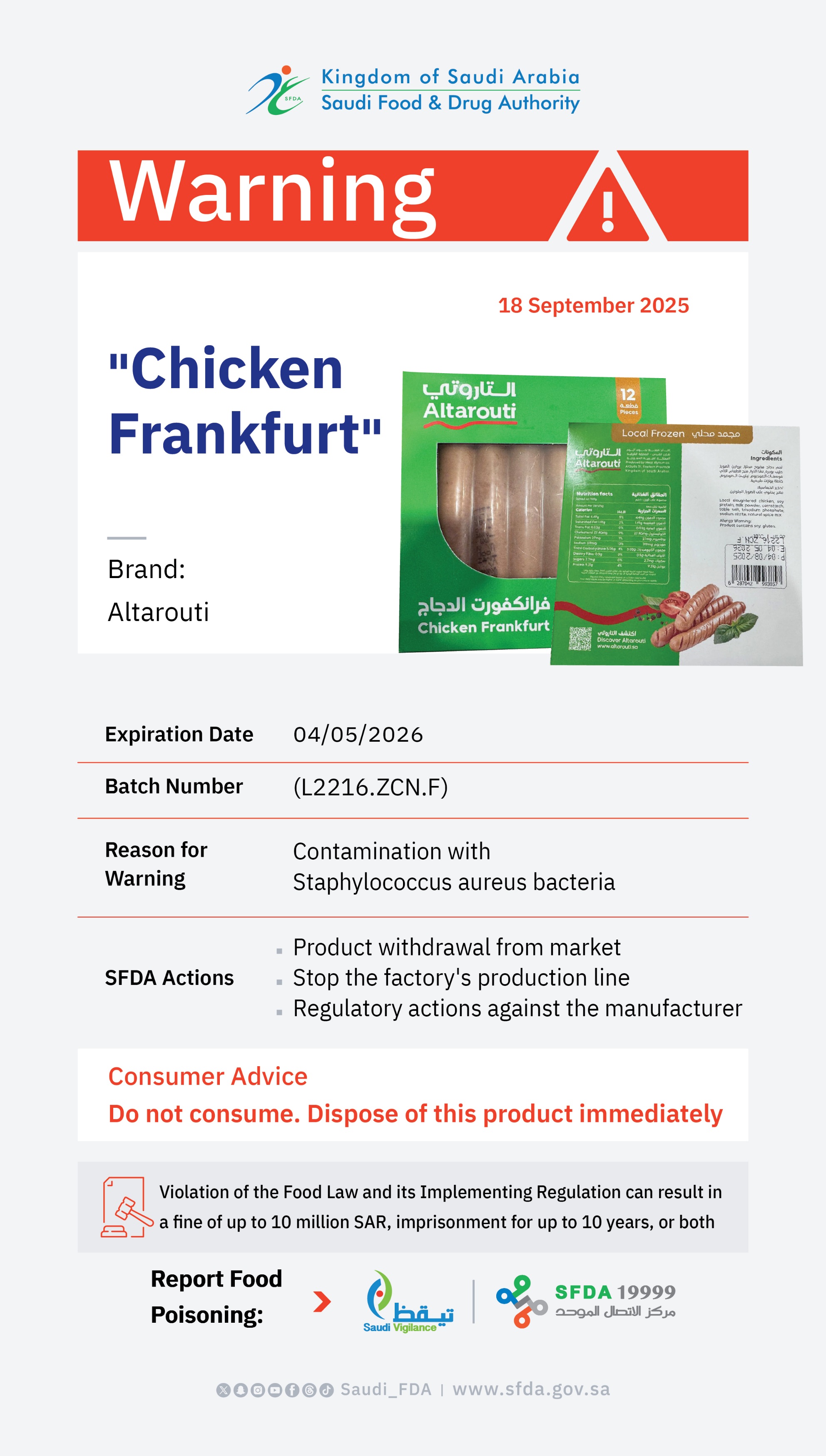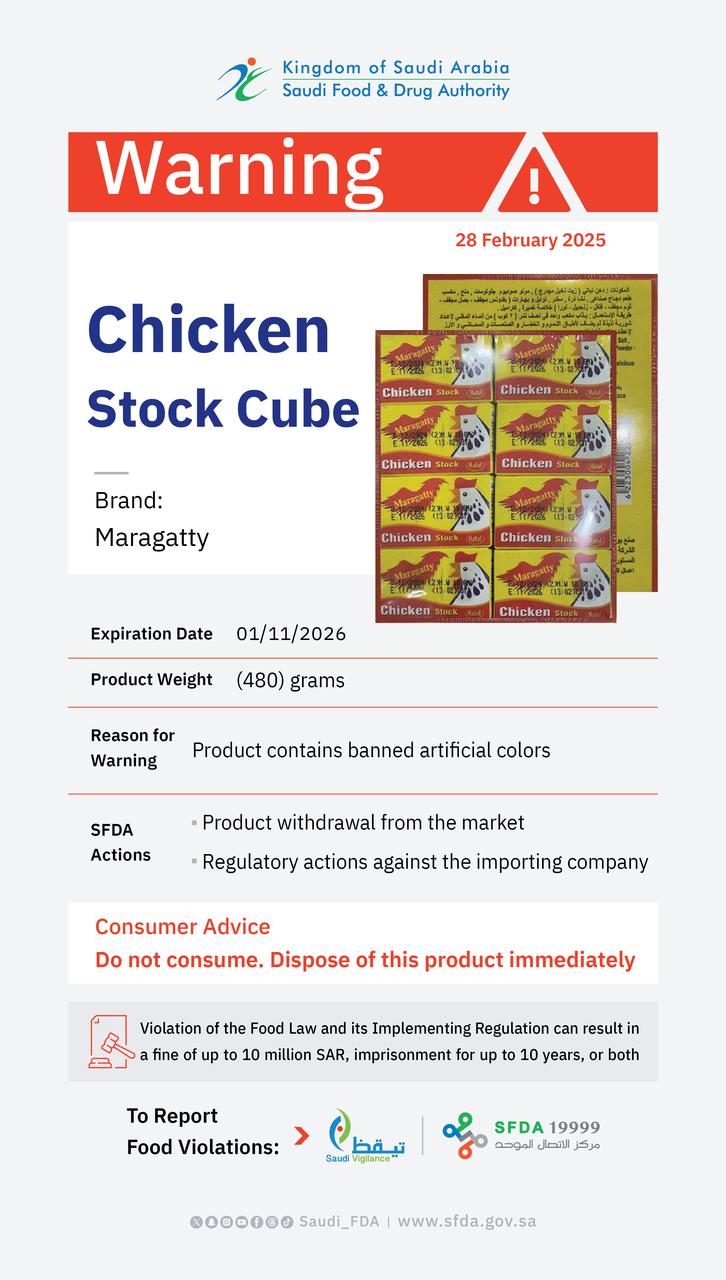
Serious Safety concerns with the use of Edetate Disodium
2008-01-20
January 16, 2008 – The U.S Food and Drug Administration (FDA), the equivalent of the Saudi Food and Drug Authority (SFDA), notified healthcare professionals and patients about important safety information concerning Edetate Disodium. There have been cases where children and adults have died when they were mistakenly given Edetate Disodium instead of Edetate Calcium Disodium (Calcium Disodium Versenate) or when Edetate Disodium was used for "chelation therapies" and other uses that are not approved by the FDA.
Edetate Disodium was approved as an emergency treatment for certain patients with hypercalcaemia (very high levels of calcium in the blood) or certain patients with heart rhythm problems as a result of very high amounts of digitalis in the blood.
Edetate Calcium Disodium was approved to reduce dangerously high blood lead levels (severe lead poisoning).
Over time, a number of uses that are not FDA approved for these products have evolved in clinical settings. Among these uses are the removal of other heavy metals from the blood and the treatment of heart disease (coronary artery disease), commonly referred to “chelation therapies.”
These two drugs have very similar names and are commonly referred to only as “EDTA.” As a result, the two products are easily mistaken for each other when prescribing, dispensing, and administering them. Edetate Disodium and Edetate Calcium Disodium works by binding with heavy metals or minerals in the body allowing them to be passed out of the body through the urine.
FDA has received reports of 11 deaths associated with the use of edetate disodium. These deaths were reported over the time period from 1971 through 2007. Most recently, two reports were received in 2003, two reports in 2005 and one report was received in 2007. Nine of the deaths were reported following the administration of edetate disodium (by its specific name). A specific EDTA drug was not identified in two cases.
Seven of the 11 deaths resulted from confusion of edetate disodium with another drug. In five cases, edetate disodium was administered instead of edetate calcium disodium. In two cases, edetate disodium was administered instead of the drug, Etomidate. Etomidate is not a form of EDTA.
General Recommendations:
1- Children and adults who are to be treated for lead poisoning should only be given the Edetate Calcium Disodium (Calcium Disodium Versenate) form of "EDTA."
2- Use the full product name. Do not use the abbreviation “EDTA” when prescribing or dispensing an order for either of the drugs.
3- Hospitals, pharmacies and healthcare providers should always check the prescribing order and the label of the drug to confirm that the correct drug has been selected for use before dispensing and administering the drug to a patient.
4- The safety or effectiveness of Edetate Disodium or Edetate Calcium Disodium for uses not described in the labeling for the product has not been established.
5- It is recommended that hospitals evaluate their need to keep Edetate Disodium stocked in their pharmacies. If there is no need to have a supply of Edetate Disodium, consider removing the product from stock to reduce the risk of confusion with Edetate Calcium Disodium.
The U.S FDA will determine further regulatory actions once the evaluation of the safety and efficacy of Edetate Disodium is completed.
Report Adverse Drug Reactions to the Saudi FDA
The public and health professionals are encouraged to report adverse drug reactions of Disodium Edetate and Edetate Calcium Disodium to the National Pharmacovigilance center on the internet at the following link:





